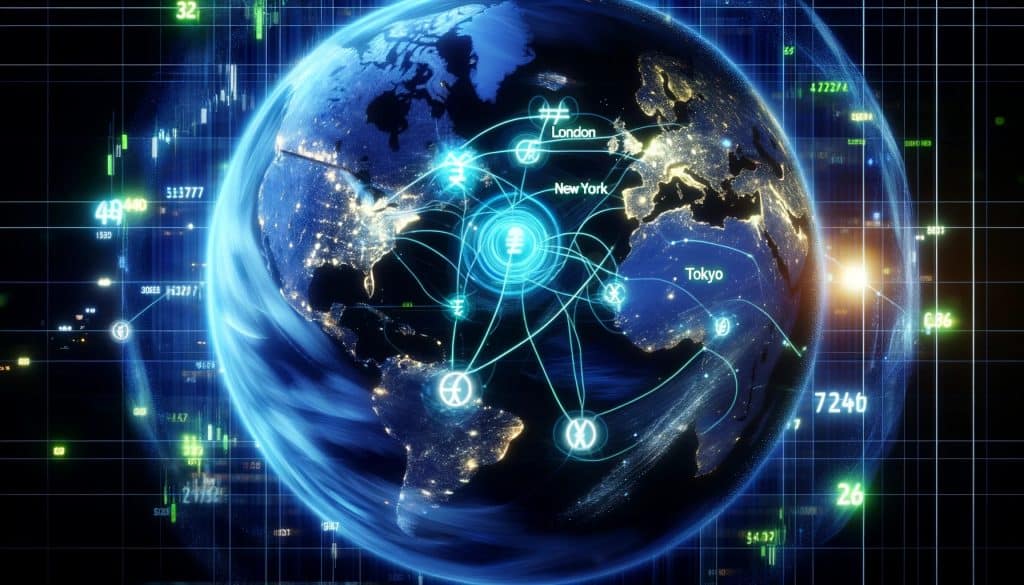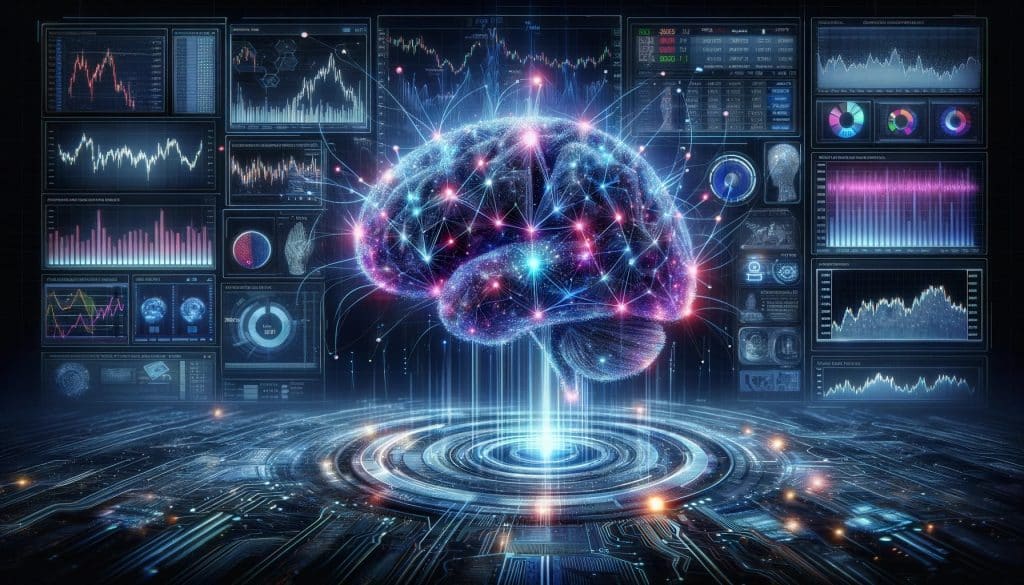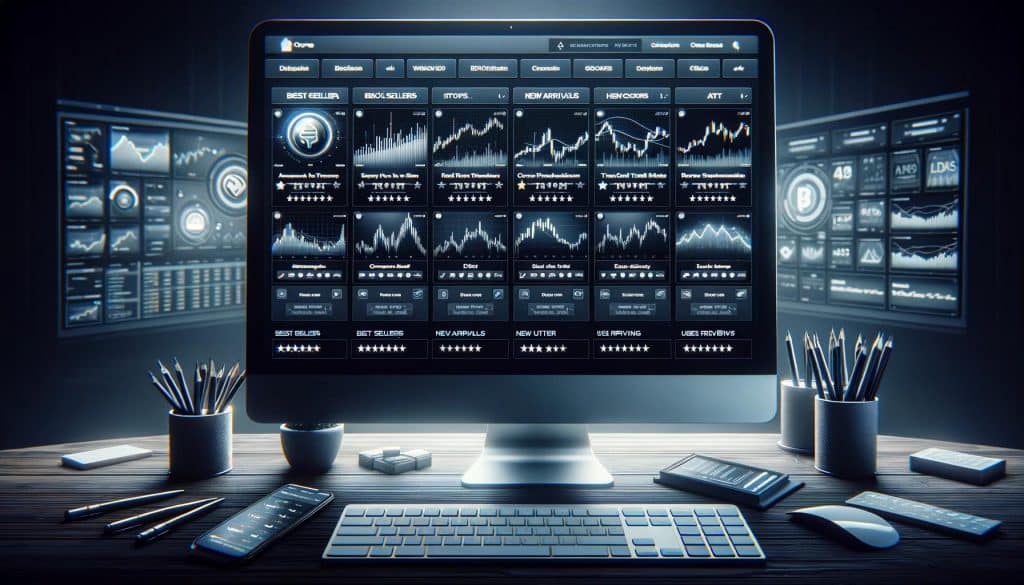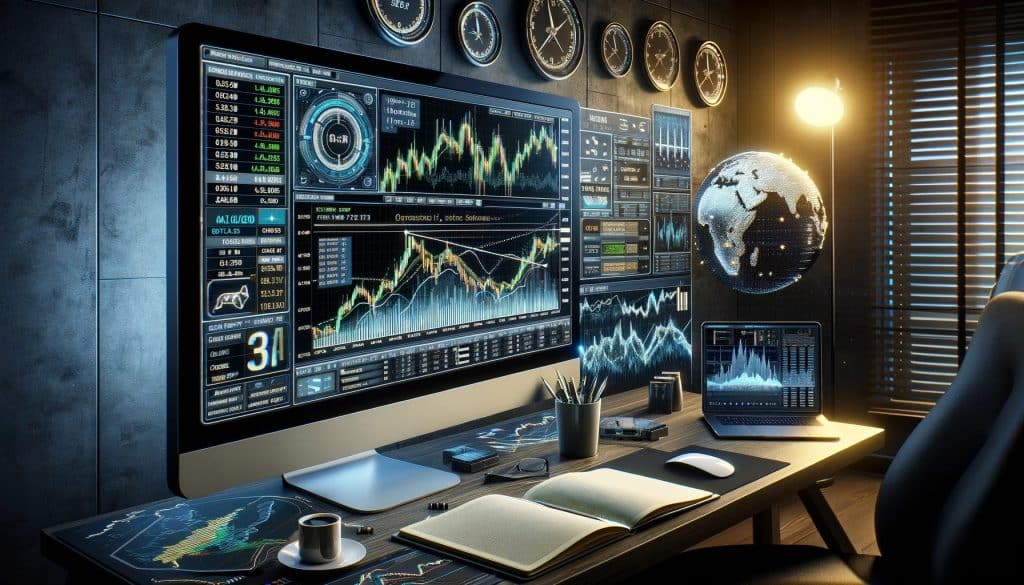In the dynamic realm of forex trading, automated systems have emerged as pivotal tools, enabling traders to navigate the market with unprecedented precision and efficiency. As we delve into the future, these systems are poised for transformative advancements, spurred by technological innovations and changing market dynamics. This exploration provides a comprehensive look at the future trends in automated trading, underscoring the strategies and technologies that will define the next era of forex trading.
The Evolution of Automated Forex Trading
Automated forex trading has transcended its initial novelty, becoming an integral component of the forex market. This section outlines its journey from simple algorithmic trading to the sophisticated systems we anticipate in the future.
The Current Landscape of Automated Forex Trading
Automated trading systems, leveraging algorithms to execute trades based on specific criteria, have democratized access to the forex market. These systems offer the allure of passive income and reduced emotional trading, but their efficiency is highly dependent on the underlying technology and market conditions.
Future Trends in Automated Trading: The Technological Frontier
Emerging technologies like artificial intelligence (AI), machine learning (ML), and blockchain are set to revolutionize automated forex trading. These innovations promise to enhance the accuracy, speed, and security of trading systems, offering traders new avenues to achieve profitability.

Innovations Transforming Automated Forex Trading
The future of automated forex trading is being shaped by several key technological advancements. Each innovation offers unique benefits and challenges, reshaping how traders approach the forex market.
Enhancing Strategies with Artificial Intelligence and Machine Learning
AI and ML are at the forefront of the future trends in automated trading, with the potential to significantly improve decision-making processes and strategy optimization. These technologies enable systems to analyze vast datasets, identify patterns, and predict market movements with greater accuracy than ever before.
Case Study: AI-Powered Risk Management
Imagine a trading algorithm that utilizes AI to adjust its risk management strategy in real-time, based on evolving market conditions. Such a system could dynamically alter leverage and position sizes to optimize returns while minimizing losses, even in volatile markets.
Blockchain’s Role in Streamlining Forex Trading
Blockchain technology offers a decentralized framework for trading, enhancing transparency and reducing transaction costs. Its application in forex trading could revolutionize how trades are executed and recorded, providing a more efficient and secure environment for automated trading.
Blockchain in Action: Reducing Slippage and Costs
Consider a blockchain-based trading platform that executes forex trades almost instantaneously, significantly reducing slippage and transaction costs. This efficiency gain could be particularly advantageous for high-frequency trading algorithms, enhancing their profitability.

Adapting to Market Volatility with Advanced Automated Systems
Market volatility presents both opportunities and challenges for automated trading systems. Future developments will likely focus on creating algorithms that can quickly adapt to and capitalize on rapid market movements.
Real-Time Data Analysis for Enhanced Decision Making
The ability to analyze and act on real-time data is crucial in volatile forex markets. Future automated trading systems will likely emphasize real-time analytics, enabling them to make informed decisions instantaneously and adjust strategies to capitalize on market movements.
Real-Time Analytics in Practice: Flash Crash Avoidance
A sophisticated automated system equipped with real-time analytics could detect the early signs of a flash crash and swiftly adjust its trading strategy to mitigate potential losses, showcasing the power of immediate data analysis.

Regulatory and Ethical Considerations in Automated Trading
As automated trading systems become more prevalent, regulatory and ethical considerations will gain prominence. Ensuring fair and transparent trading practices is essential for the integrity of the forex market.
The Evolving Regulatory Landscape for Automated Forex Trading
Regulatory bodies worldwide are grappling with the challenges posed by advanced trading technologies. Future regulations will need to address concerns such as market manipulation, transparency, and trader protection without stifling innovation.
Navigating Compliance: A Balancing Act
The development of a regulatory-compliant trading algorithm that adheres to new guidelines while maintaining competitive performance will be a key challenge for developers. This balancing act between innovation and compliance will shape the future of automated forex trading.
Conclusion: The Future Is Now
The future trends in automated forex trading highlight a trajectory filled with technological advancements, regulatory evolution, and the continuous need for adaptation. As AI, ML, and blockchain technologies reshape the landscape, traders equipped with advanced automated systems stand to gain a significant edge. Staying informed and agile, ready to embrace the innovations and challenges that lie ahead, will be crucial for anyone looking to succeed in the future forex market. The journey ahead is as promising as it is daunting, but for those prepared to navigate these changes, the rewards could be substantial.

FAQs on Future Trends in Automated Forex Trading
What are the main future trends in automated forex trading?
The main future trends in automated forex trading include the integration of artificial intelligence (AI) and machine learning (ML) for enhanced market analysis and decision-making, the adoption of blockchain technology for increased transaction efficiency and security, the development of adaptive algorithms that can adjust to changing market conditions in real-time, and the potential application of quantum computing to solve complex financial models rapidly.
How will AI and machine learning change automated forex trading?
AI and ML are set to revolutionize automated forex trading by providing systems the ability to learn from market data and continually improve their trading strategies. These technologies will enable automated trading systems to analyze vast amounts of data for pattern recognition, predict market movements with higher accuracy, and make informed trading decisions based on predictive analytics, significantly improving the success rate of trades.
Can blockchain technology be applied in automated forex trading?
Yes, blockchain technology can be applied in automated forex trading to enhance the security, transparency, and efficiency of transactions. By utilizing blockchain, trades can be executed and recorded on a secure, immutable ledger, reducing the need for intermediaries, lowering transaction costs, and potentially speeding up the settlement process. Blockchain can also facilitate the use of smart contracts, automating the execution and settlement of trades based on predefined conditions.
What role will quantum computing play in forex trading?
Quantum computing holds the promise of processing and analyzing data at speeds far beyond the capabilities of traditional computers. In forex trading, quantum computing could be used to quickly solve complex financial models, simulate numerous trading scenarios in seconds, and identify optimal trading strategies that would be impractical to discover using current technology. This could lead to more effective risk management and higher profitability.
How might regulatory frameworks impact the future of automated forex trading?
As automated forex trading technologies evolve, regulatory frameworks will likely adapt to ensure market integrity and protect investors. Future regulations may address issues such as high-frequency trading, algorithmic transparency, and ethical considerations like market manipulation. Traders and system developers will need to stay informed about regulatory changes and ensure their trading algorithms comply with new laws and guidelines to avoid penalties.
Are there ethical concerns associated with automated forex trading?
Yes, there are ethical concerns associated with automated forex trading, particularly regarding market fairness and the potential for algorithms to manipulate market prices. Future trends may involve the development of ethical guidelines and standards for automated trading systems, ensuring they operate transparently and do not unfairly disadvantage other market participants. It will be crucial for the trading community to address these concerns proactively to maintain trust in the forex market.
How can traders prepare for these future trends?
Traders can prepare for future trends in automated forex trading by staying informed about technological advancements, regulatory changes, and ethical considerations. They should consider investing in education and training on new technologies, adapting their trading strategies to incorporate AI and ML insights, and ensuring their trading practices comply with evolving regulatory standards. Embracing innovation and being adaptable to change will be key to staying ahead in the competitive world of forex trading.





